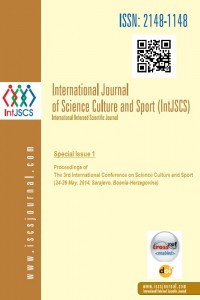Abstract
All the events that have occurred on the Earth take place as a requirement of God's infinite knowledge that surrounds everything and his wisdom in accordance with the laws that he had put. No event and no one can step outside of the law. God has given human beings the ability to discover these laws. Then the first step required for human is to explore these laws.
The evil and calamities that exposed to people happen sometimes by their own fault and sometimes as a requirement of the secret exam of The Creator. All these are relative to a particular law. People have the power to distinguish between the events that have come to them because of their actions and the events that occurred because of the God ordered them as like they are. For this reason, the excuse to refuge to God’s predestined order/qadar is not justified for them.
In this presentation we will try to offer the rational and traditional basics of this theological approach that has been formed above its framework.
Abstract
Yeryüzünde meydana gelen tüm olaylar, Allah‟ın her şeyi kuşatan bilgisinin ve sonsuz hikmetinin bir gereği olarak koymuş olduğu yasalar doğrultusunda gerçekleşir. Hiçbir olay ve hiç kimse bu yasaların dışına çıkamaz. Allah, insana bu yasaları keşfetme imkân ve kabiliyetini vermiştir. O halde insana düşen bu yasaları keşfetmek için gereken adımları atmaktır. İnsanın başına gelen kötülük ve musibetler, bazen kendi hatası bazen de imtihan sırrının bir gereği olarak gerçekleşir. Bunların hepsi, belli bir yasaya göredir. İnsan, başına gelen kötülük ya da musibetlerin hangilerinin kendi hatası, hangilerinin de kendi elinde olmayan nedenlerle gerçekleştiğini ayırt edebilecek bir temyiz gücüne sahiptir. Bu yüzden kendi sorumluluğunu kadere fatura etmek için mazeret ileri sürme hakkı onun elinden alınmıştır. Bu tebliğimizde yukarıda çerçevesi oluşturulan kelamî/teolojik yaklaşımın aklî ve naklî temellerini sunmaya çalışacağız
Keywords
Details
| Primary Language | Turkish |
|---|---|
| Journal Section | Articles |
| Authors | |
| Publication Date | March 22, 2016 |
| Published in Issue | Year 2014 Volume 2 (Special Issue 1) |


